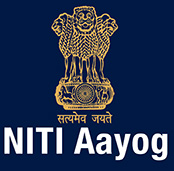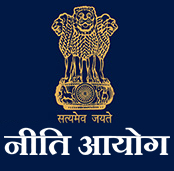How Small Businesses Are Coping with Covid-19
The Covid-19 pandemic has impacted business of most sectors around the world. At 13.46, the World Pandemic Uncertainty Index by IMF for Q1 2020 is comfortably higher than all other pandemics in the last twenty years. The previous high was 4.40 at Q2, 2003, during the SARS outbreak. The Uncertainty Index has historically coincided with economic impact and this pandemic is no different.
While small businesses are expected to be impacted the most, many of them are trying to reinvent themselves, finding innovative ways to keep their operations going by leveraging technology and keeping the focus on customers. However, the online mode may not be feasible for all. Many organizations could not replicate their earlier operating model during the lockdown; it is important to seek a new direction. While there are many remote-connecting options available, what works for a particular organization depends on its values, customer needs and culture. The activities should be aligned with the core mission.
Jayanagar Jaguars (JJ), a fitness company with a business model focused on physical presence and having conducted major marathons in the past, never did any training remotely despite its presence in 27 locations. Post Covid-19 they are beginning to recaliberate their goal of having 50 locations this year. Similarly, Bangalore Adventure School (BASCOOL) that provides technical training for outdoor adventure activities relied on physical meetings even for their theory sessions.
JJ came up with a 'fit-from-home' programme. Similarly, BASCOOL considered how they could get people motivated to undertake safe adventures without having physical sessions.
Technology As An Enabler
Businesses are finding unique ways of leveraging this trend to connect with their customers. Technology has been an enabler at a time of social distancing, which could very well be the norm for upcoming months. Digital connectivity has been in the forefront—Cellular Operators' Association and the Internet Service Provider Association of India are bracing for a 30% increase in data consumption. Curated modules were created for at-home exercises for strength, agility and biomechanics conducted through remote conferencing, based on fitness levels, with leaders to answer questions.
Despite an impressive online following, BASCOOL never considered having an online strategy. They realized conducting theory sessions online was actually saving them.
Going online is especially important for small businesses whose ability to generate cash flows at times of lockdown is dependent on their continuing to provide services.
As per Coach Deshpande of JJ, the “biggest challenge was to keep the runners motivated for fitness”. Their lives have also been turned upside down. Most of them now work at odd times at night and find it difficult to wake up early. The sense of routine is missing. Also, the concept of fitness from home is difficult for many to accept.
Having extensively relied on social interaction and group participation to keep motivation levels high, these companies are now evolving new channels that do not require physical interaction for keeping their clientele motivated. For example, creating WhatsApp groups, showcasing role models, holding online introductory sessions for new entrants, creating contests like plank challenges, surya-namaskar challenge, skipping challenge, and showcasing winners on social media.
Those who manage to reinvent themselves during this period, can resume operations post lockdown in the fifth gear. The learnings from remote working can be used to connect with employees and customers in ways that were previously not considered.
'Though the participation numbers have gone down, we see a weekly variation and it is now at 30%. We are still experimenting and figuring out what works best,' says Coach Deshpande. 'However, there has been some key learnings. Earlier, we did not conduct yoga sessions at all our locations as we could not assure consistency of quality. Our earlier model relied heavily on having the physical presence of a trained instructor. But now, we have realized, we can scale our yoga activities to all locations, while maintaining a high quality, using technology.'
Gokul found a new calling in terms of reach, 'Most of our current operations are based in Bengaluru. Now, with the online streaming of discussions, we have gained a lot of interest in other cities as well. I have received a partnership request from Mumbai recently. This is a part of our business that we had neglected before. Going forward, we will dedicate sometime to our online engagement as well.'
The increasing penetration of data and internet services and availability of remote networking technologies at a low cost provides effective ways of gaining insight into customers. The changing preferences and motivations of customers also present new opportunities. A 2010 Harvard Study shows that, throughout history, businesses that maintained a balance between operational efficiency and investment into future trends during a crisis had a 37% chance of outperforming their competitors. As Satya Nadella put it, 'Longevity in business is about being able to reinvent yourself.'
*Rohit Satish is a Young Professional, NITI Aayog. Views expressed are personal.
 National Portal Of India
National Portal Of India 


